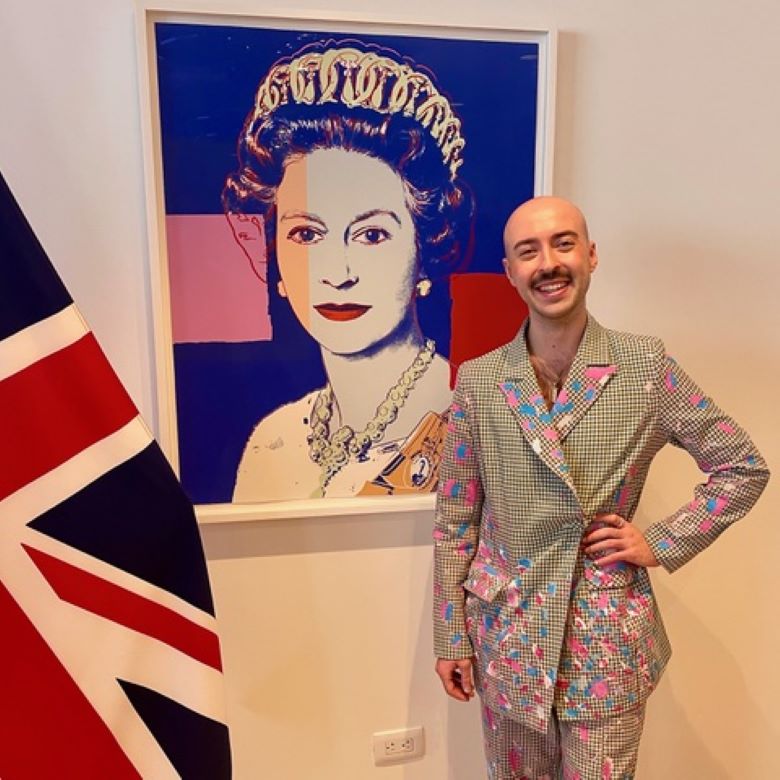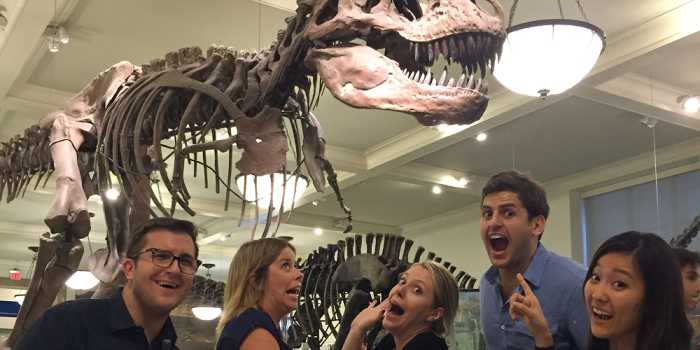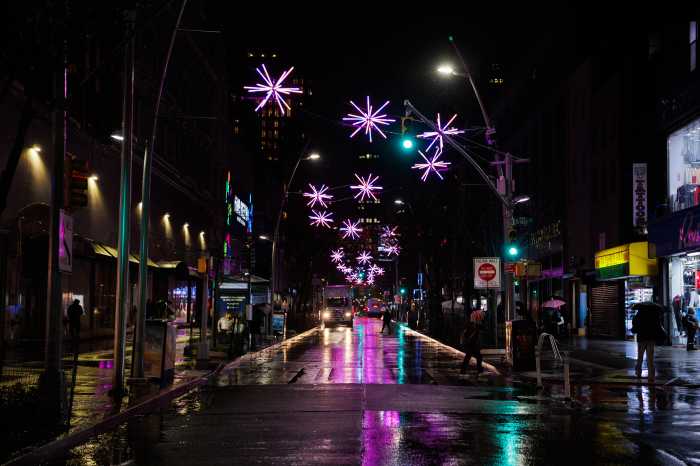Writer, actor, social media personality and soon-to-be Broadway headliner Rob Madge grew up in a home that could not have been more supportive or accepting of a child who knew they were queer — almost from day one. Their hilarious adventures growing up in a loving family who happily abetted Rob in their full-scale living room productions — and recorded them — inspired Madge’s show, “My Son’s a Queer (But What Can You Do?)” The show, which began at the Edinburgh Fringe Festival, moved to London’s West End, and took home an Olivier nomination, starts its run at the Lyceum Theatre on Feb. 27.
As a 12-year-old, Madge was obsessed with Disney and Disney Princesses, and their father, a working man with little interest — and no experience — in show business quickly became cinematographer, stage manager, and enthusiastic supporter, even, as Madge explained recently at an event at The British Residence in New York, insisting on buying an Ariel wig for his child because that’s what they wanted. It’s the kind of loving attention few queer kids receive, even in 2024. The show’s title, by the way, sums up Madge’s parents’ response to Madge being queer — a statement of acceptance.
“As I say in the show,” Madge said to Gay City News, “if Pride starts at home, it thrives when you’re grown. So being with a family that never questioned my authenticity and my identity and just let me roll with it, really just made all the other opinions, of which there are many in this world — negative opinions — they don’t matter to me so much because I had that strong family foundation. And that’s the message I tell everybody, which is that people will always have an opinion on your reality, on your existence, but that does not take away the fact that you are real. You exist, and you can be yourself.”
In the one-person show, this strong, uplifting message is delivered as Madge revisits their first (not quite perfect) Disney parade, staged in the living room, and proceeds through their love of musical theater to the present day. The show began, perhaps not surprisingly, during the pandemic as Madge dug out some of the old VHS tapes of their performances — which got increasingly elaborate over time thanks in part to dad’s growing ability behind the camera — and posted them online. Beyond entertainment value, Madge soon discovered that there was an entire population of other people who had spent a good part of their childhoods performing for parents, grandparents, and families in their living rooms — or “lounges,” as the British say.
Madge got such a strong response that in 2020, they sent out a query to their fans asking if these lounge acts were a common experience. Madge was overwhelmed by the response. “It was just reaffirming the fact that we all did this, that we were not new and trendy. So many people think of the LGBTQ+ community as some kind of ‘new agenda,’ and it’s proof of the fact we were all doing this 20, 30, 40, 50 years ago. It’s oddly reaffirming that this community we have as adults we had back then; we just didn’t know it.”
As a young performer, Madge quickly outgrew the lounge, starting to appear in shows in the West End at age 9, going on to get a master’s degree in musical theater from the Royal Academy of Music, and amassing an impressive number of professional credits and awards prior to writing “My Son’s a Queer…”
Over and above the Broadway run, currently slated for a 16-week run through mid-June, Rob and the producers are partnering with Lady Gaga’s Born This Way Foundation with a series of activations and fundraising programs planned to promote the organization’s mission of “making kindness cool, validating the emotions of young people, and eliminating the stigma surrounding mental health,” according to the show’s producers. In addition, the producers also announced there will be programs that will make tickets at each performance available at affordable rates for audiences who might not be able to afford Broadway prices.
In talking about the show and the experience, Madge returns to one theme: family. They talk about how queer people need the support of family to live authentically. It may not be a family of origin, but they stress the importance of supporters and allies to allow young people — or anyone — to live life to its fullest.
They’re eager to welcome New York audiences into their family.












